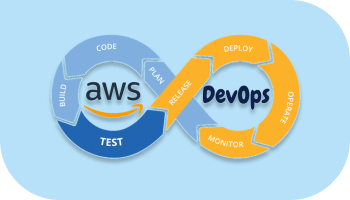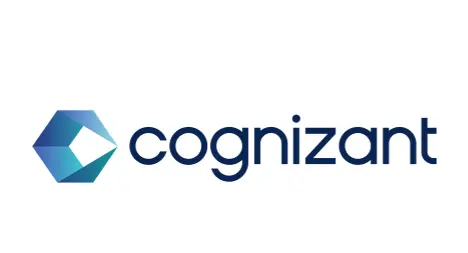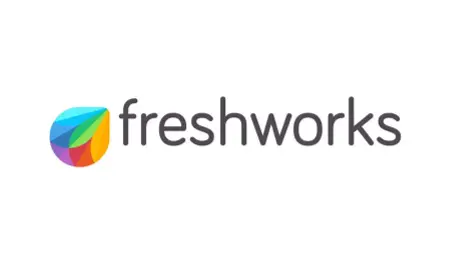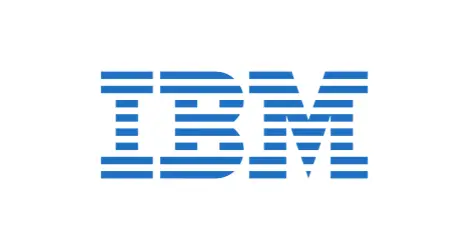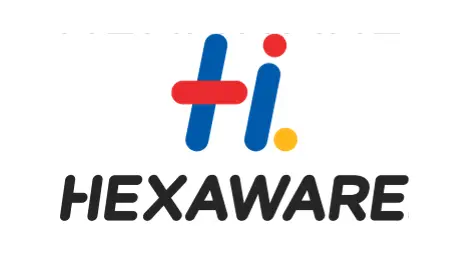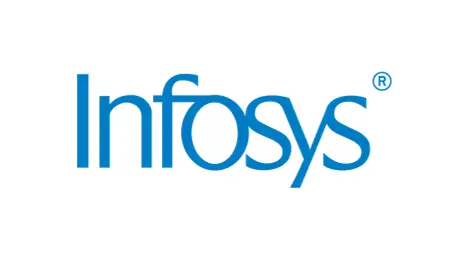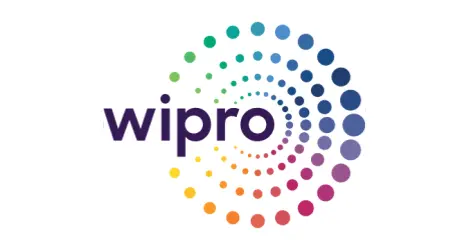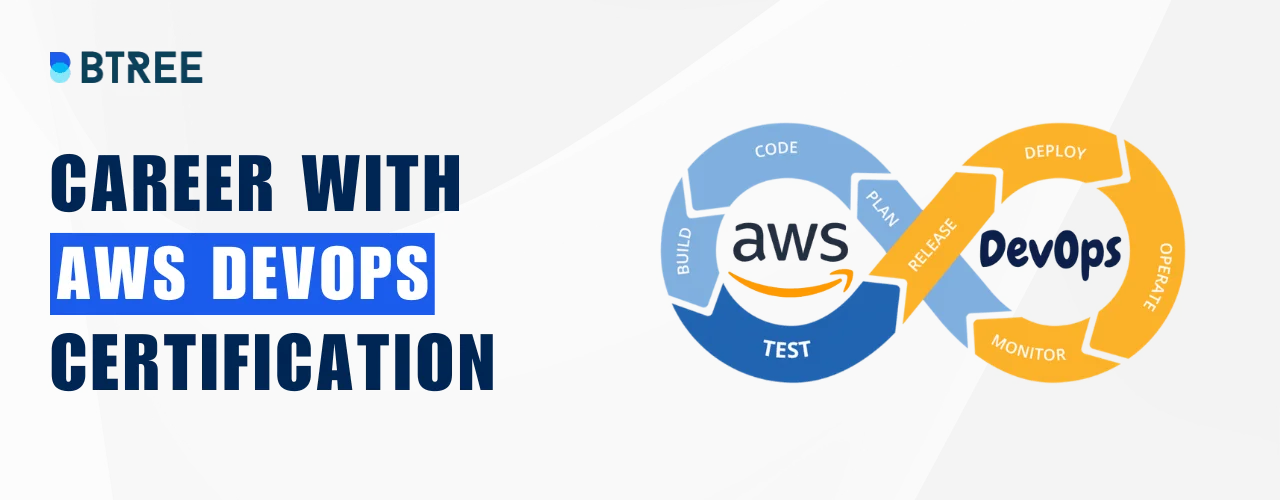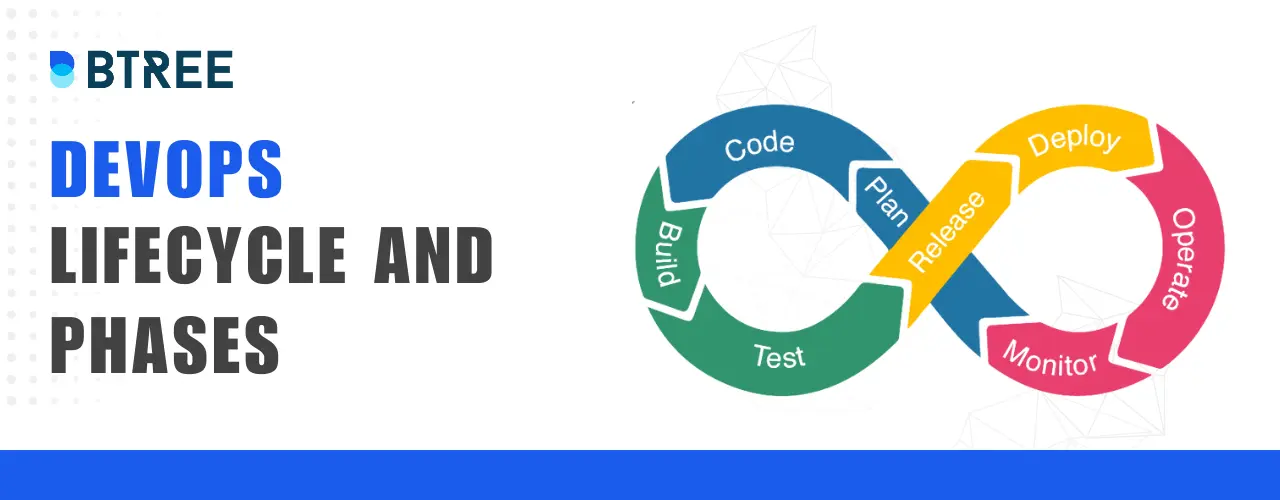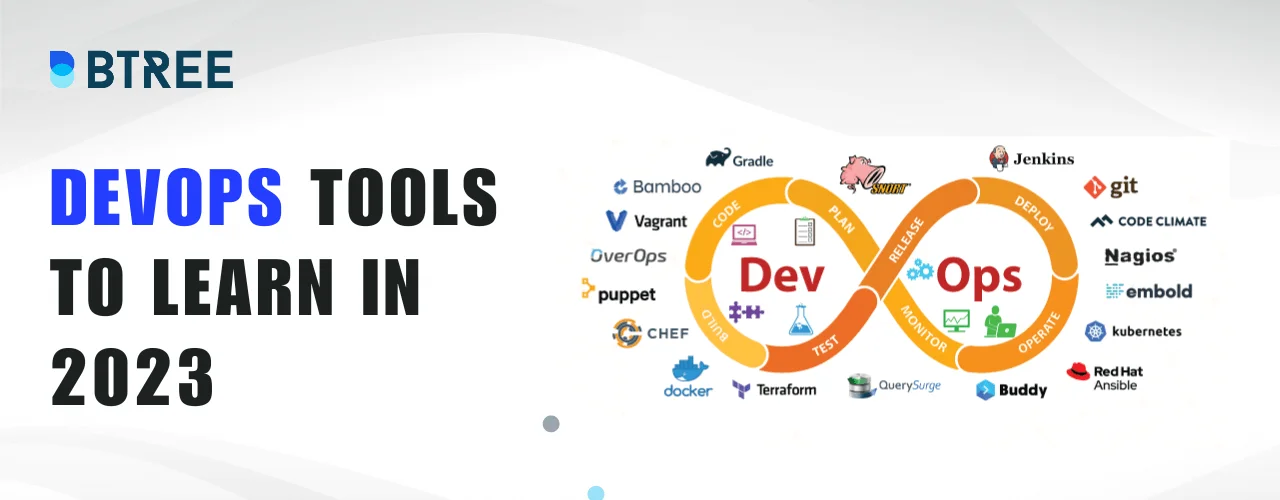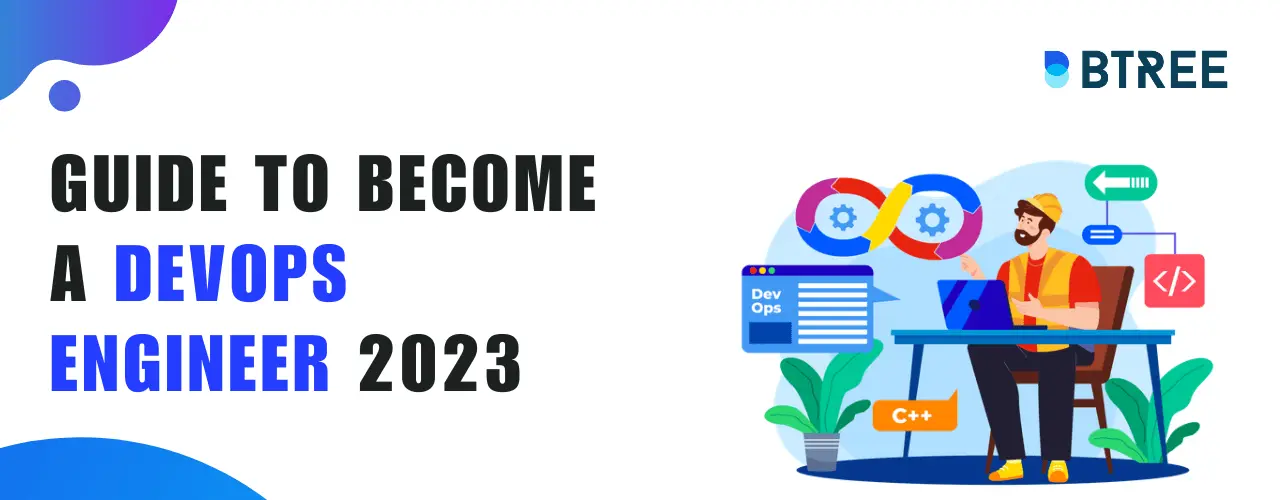Key Highlights
AWS DevOps Online Training in Hyderabad
This AWS DevOps certification course in Hyderabad empowers you to master the top skills on various AWS DevOps tools like linux, docker, jenkins, kubernetes, etc with real-time projects as examples. Enrol now with our AWS DevOps Training at Hyderabad and gain professional devops expertise.
What are projects covered in this AWS DevOps Training at Hyderabad?
There are several projects that are covered in our AWS DevOps online training program where students can gain a practical exposure by managing and deploying applications.
1. Continuous Integration Pipeline: Create an automated build, test, and deployment pipeline for an e-commerce application using AWS CodePipeline.
2. Infrastructure as Code: Use AWS CloudFormation to specify the whole application's infrastructure, enabling IaC and consistent, repeatable deployments.
3. Containerization with Amazon ECS: Manage scalability and resource efficiency while using Docker to containerize the application and deploying it on Amazon ECS.
4. Monitoring and Scaling: Set up auto-scaling to handle traffic variations and implement monitoring using Amazon CloudWatch to monitor application performance.
5. High Availability and Disaster Recovery: To provide high availability and resilience, set up cross-region replication for databases using Amazon RDS and execute failover techniques.
What are the skills required to join BTree’s AWS DevOps training in Hyderabad?
To enrol in BTree's AWS DevOps training in Hyderabad, prerequisites may differ by level experience. Freshers need basic programming and cloud comprehension, while experienced professionals require AWS mastery, CI/CD pipeline familiarity, and Infrastructure as Code skills. This AWS Devops course module covers AWS essentials, DevOps tools, and practical projects for comprehensive learning.
What is the job opportunity after completing this AWS DevOps Certification?
After completing the AWS DevOps Certification, every individual pursues a differ AWS DevOps role which makes you an attractive candidate for organisations aiming to optimise their software development processes and maintain cloud-based systems. This opens doors to higher earning potential and career opportunities as mentioned below.
1. Cloud Engineer
2. Site Reliability Engineer (SRE)
3. Infrastructure Automation Specialist
4. DevOps Engineer
Talk To Us
We are happy to help you 24/7
Career Transition
60%
Avg Salary Hike
40 LPA
Highest Salary
500+
Career Transitions
300+
Hiring Partners
AWS Services Covered
AWS EC2 (Elastic Cloud Compute)
AWS EBS (Elastic Block Store)
AWS RDS (Relational Database Services)
AWS IAM (Identity Access Management)
Load Balancer and Auto Scaling
Cloud Formation
Elastic Beanstalk
Storage Services
AWS Lambda
Code Build & Code Deploy
Code Pipeline and etc...
Tools Covered









Course Fees
02
Sep
SAT - SUN
08:00 PM TO 11:00 PM IST (GMT +5:30)
09
Sep
SAT - SUN
08:00 PM TO 11:00 PM IST (GMT +5:30)
16
Sep
SAT - SUN
08:00 PM TO 11:00 PM IST (GMT +5:30)
Unlock your future with our
"Study Now, Pay Later"
program, offering you the opportunity to pursue your education without financial constraints.
EMI starting at just
₹ 3,000 / Months
Available EMI options
3
Months EMI
6
Months EMI
12
Months EMI

Corporate Training
Enroll in our corporate training program today and unlock the full potential of your Employees
Curriculum for AWS DevOps Course in Hyderabad
Introduction to Cloud Computing & AWS
- What is Cloud Computing
- How AWS is the leader in the cloud domain
- Various cloud computing products offered by AWS
- Introduction to AWS S3, EC2, VPC, EBS, ELB, AMI
- Getting a detailed understanding of the AWS architecture and the AWS Management Console
- Introduction to AWS EC2
- Comparing Public IP and Elastic IP
- Demonstrating how to launch an AWS EC2 instance
- What is auto scaling
- AWS EC2 best practices and cost involved
- Understanding various concepts of backup services in AWS
Database services
- Elastic Block Storage (EBS) for block level persistent storage volumes with S3 buckets
- Understanding Amazon RDS and Amazon Aurora which are relational databases
- Amazon DynamoDB which is a NoSQL database
- Understanding Amazon Redshift which is a data warehousing product
- Amazon ElasticCache which is an in-memory data store
- Deploying AWS database migration service
Object Storage
- Introduction to AWS storage
- AWS S3 (Simple Storage Service)
- Creating an AWS S3 bucket
- AWS Storage Gateway
- Understanding the Command Line Interface (CLI)
- Hosting a static website using Amazon S3
- Amazon Glacier storage for long-term data backup and archiving
- Amazon Snowball for data import/export
Autoscaling and load balancing
- Understanding Fault Tolerance in AWS
- In-depth study of Elastic Load Balancing
- The types of Load Balancers viz. Classic and Application
- AWS Auto Scaling mechanism
- Understanding AWS Management Console
- How to access the Elastic Load Balancing
- Studying AWS SDK, AWS CLI and Https Query API
Virtual Private Cloud
- What is Amazon VPC
- VPC as a networking layer for EC2
- Getting started with VPC
- Examples
- VPC and Subnets
- Default and non-default VPCs
- Components of VPC networking
- IP addressing
- Security
- VPN connections
- Accessing the internet
- Using AWS PrivateLink to access the services
- VPC supported platforms
Application services, AWS Lambda and CLI
- Introduction to various AWS application services
- Elastic Beanstalk
- Simple Email Services (SES)
- Simple Notification Service (SNS)
- AWS Lambda
- Elastic OpsWorks and CLI
IAM and monitoring
- Authentication (who can use) and Authorization (level of access)
- IAM Policies – JSON structure, users, groups and their Roles
- IAM HTTPS API
- Logging IAM events with AWS CloudTrail
- Monitoring and managing AWS resources using CloudWatch
- Deploying configuration alerts and notifications with CloudWatch
- Billing for CloudWatch
Configuration management and automation
- Configuration management and automation of server configuration using OpsWorks
- Determining how servers are configured, managed and deployed across EC2 instances
- Creating a virtual machine using Amazon Machine Image (AMI)
- Introduction to the Domain Name Registration service AWS Route 53
- How to route internet traffic to resources
- Checking health of resources automatically
- Provisioning of infrastructure resources using AWS CloudFormation
Architecting AWS – whitepaper
- Important guidelines for creating a well architected AWS framework that is resilient and performant
- Designing of fault-tolerant and high-availability architecture, resilient storage, decoupling mechanism, multi-tier architecture solution, disaster recovery solution, scalable and elastic solutions
AWS Architect Questions
- Guidance for clearing the exam
- Most probable interview questions and other helpful tips for clearing the exam and interview
AWS Migration
- Migrating to the AWS cloud
- Business drivers for migration
- Various stages of cloud adoption
- The actual migration process
- Migration tools and services in AWS
- Migrating customers to AWS cloud
- Track the progress of application migration
- Types of migration including data migration, application migration and databases migration
AWS Security
- AWS cloud security essentials
- Penetration testing
- Security compliance
- Infrastructure security
- Mitigating DDOS
- Identity and Access Control (IAM)
- Logging and monitoring
- Automatic audits and compliance
- Limitations and challenges of native AWS security
Infrastructure Setup
- Installation of Devops Tools on AWS
- Git
- Docker
- Selenium
- Maven
- Jenkins
- Puppet
- Ansible
- Kubernetes
- Nagios
Introduction to DevOps
- What is Software Development
- Software Development Life Cycle
- Traditional Models for SDLC
- Why Devops?
- What is Devops?
- Devops Lifecycle
- Devops Tools
Software Version Control
- What is Version Control
- Types of Version Control System
- Introduction to SVN
- Introduction to Git
- Git Lifecycle
- Common Git Commands
- Working with Branches in Git
- Merging Branches
- Resolving Merge Conflicts
- Git Workflow
Containerization using Docker - Part I
- Introduction to Docker
- Understanding Docker Lifecycle
- Components of Docker Ecosystem
- Common Docker Operations
- Creating a DockerHub Account
- Committing changes in a Container
- Pushing a Container Image to DockerHub
- Creating Custom Docker Images using Dockerfile
Configuration Management using Puppet
- Need of Configuration Management
- Configuration Management Tools
- What is Puppet
- Puppet Architecture
- Setting up Master Slave using Puppet
- Puppet Manifests
- Puppet Modules
- Applying configuration using Puppet
- Puppet File Server
Configuration Management using Ansible
- What is Ansible?
- Ansible vs Puppet
- Ansible Architecture
- Setting up Master Slave using Ansible
- Ansible Playbook
- Ansible Roles
- Applying configuration using Ansible
Continuous Testing
- What is Continuous Testing?
- What is Maven?
- Running Test Cases on Chromium Web Driver
- What is Headless Mode?
Continuous Integration using Jenkins
- Introduction to Continuous Integration
- Jenkins Master Slave Architecture
- Understanding CI/CD Pipelines
- Creating an end to end automated CI/CD Pipeline
Continuous Orchestration using Kubernetes
- Introduction to Kubernetes
- Docker Swarm vs Kubernetes
- Kubernetes Architecture
- Deploying Kubernetes using Kubeadms
- Alternate ways of deploying Kubernetes
- YAML Files
- Creating a Deployment in Kubernetes using YAML
- Services in Kubernetes
- Ingress in Kubernete
DevOps on AWS
- How to deploy DevOps principles and methodology on the AWS platform
- DevOps lifecycle and the important stages in the DevOps methodology
- What is AWS CodeBuild
- AWS CodeCommit
- AWS CodePipeline
- AWS CodeDeploy
Deploying Infrastructure with Terraform
- Installing Terraform – Windows Users
- Installing Terraform – Linux Users
- Choosing Right IDE for Terraform IAC development
- Creating first EC2 instance with Terraform
- Terraform Code – First EC2 Instance
- Understanding Resources & Providers
- Destroying Infrastructure with Terraform
- Destroying Specific Resource
- Understanding Terraform State files
- Understanding Desired & Current States
- Challenges with the current state on computed values
- Terraform Commands – State Files
- Terraform Provider Versioning
- Types of Terraform Providers
- Understanding Attributes and Output Values in Terraform
- Attribute Resource (Document)
- Referencing Cross-Account Resource Attributes
- Terraform Variables
- Data Types for Variables
- Fetching Data from Maps and List in Variable
- Terraform Format
- Validating Terraform Configuration Files
Continuous Monitoring using Nagios
- What is Continuous Monitoring
- Introduction to Nagios
- Nagios Architecture
- Monitoring Services in Nagios
- What are NRPE Plugins
- Monitoring System Info using NRPE plugins
Terraform Modules & Workspaces
- What is Infrastructure as a code
- Iac vs Configuration Management
- Introduction to Terraform
- Installing Terraform on AWS
- Basic Operations in terraform
- init
- plan
- apply
- destroy
- Terraform Code Basics
- Deploying and end-to-end architecture on AWS using Terraform
“Accelerate Your Career Growth: Empowering You to Reach New Heights in AWS DevOps”
Aws DevOps Projects
Best industry knowledge
Hands-On practical experience
Real-Time experience
Infrastructure Cost Optimization
Developing a cost optimization strategy for AWS resources using services like AWS Cost Explorer and AWS Trusted Advisor. Automating cost analysis and resource optimization recommendations with Lambda and CloudWatch Events.
Serverless Application Deployment and Orchestration
Creating a serverless architecture using AWS Lambda, DynamoDB, and API Gateway. Implementing AWS CodePipeline and CodeDeploy for continuous integration and deployment enables automated scaling and efficient management.
AWS Lambda for Event-Driven Microservices
Developing event-driven microservices with AWS Lambda, S3, and DynamoDB. Utilising AWS Step Functions for orchestration, integrating with CodeCommit and CodePipeline for automated deployments, achieving a highly scalable and cost-efficient architecture.
Training Options

Live interactive online training
-
50+ Hours of online AWS DevOps Training -
1:1 personalised assistance -
Practical knowledge -
Chat and discussion panel for assistance -
Work on live projects with virtual assistance -
24/7 support through email, chat, and social media.
AWS Certified DevOps Professional Certification
Our AWS DevOps Certification in Hyderabad prepares students for job ready professionals with equipped skills and tools knowledge with practical experience on real-world case studies, assignments, and projects. This DOP-C02 Certification helps students in preparing for mock interviews, samples resume building, career guidance and many more benefits of completing this AWS DevOps Course in Hyderabad.
On completion of this AWS DevOps Course with live projects and assessments everyone will be awarded with globally recognized certification. With our AWS DevOps Training unlock your career opportunities in diverse roles like DevOps Engineer, Cloud Specialist, and more.
Our Student feedback
Hear From Our Hiring Partners
Lead recruiter at Zoho
Talent Acquisition expert at CTS
BTREE's Placement Guidance Process


Placement support
Have queries? We’re here for you! We support you with 24X7 availability with all comprehensive guidance.

AWS DevOps Sample Resume
Build a robust resume with battle-cut tools to land your dream job. Impress any recruiter with a rock-solid CV and personality!

Free career consultation
Overwhelmed about your future career? We offer free career consultation that helps you to figure out what you want to become.
Our Graduates Works At


AWS DevOps Course Frequently Asked Questions
Why should I take up this AWS DevOps Course at BTree Systems?
Enrol in the BTree’s AWS DevOps Course in Hyderabad and have the benefit of hands-on training from knowledgeable professionals and real-world projects. We offer excellent career advice and hands-on training to get mastered in cloud automation, CI/CD pipelines, and get job-ready as a DevOps expert.
Does this AWS DevOps Course curriculum cover trending tools or technologies?
Certainly! Our AWS DevOps Course curriculum is specifically created to cover the latest and most in-demand tools and technologies. Modern developments in CI/CD pipelines, automation frameworks, and cloud infrastructure will be examined. We make sure you have the knowledge and abilities required by the sector. The following trending tools and technologies:
1. Kubernetes
2. Docker
3. Linux
4. Terraform
5. Jenkinks
6. Ansible
What modes of training are conducted for this AWS DevOps Course?
AWS DevOps Course in Hyderabad provides a variety of teaching techniques. We provide students online training and one-on-one online AWS DevOps training under the guidance of certified mentors. Our thorough AWS DevOps curriculum covers all of the essential ideas and enables students to learn by doing.
What is the Duration for the AWS DevOps Training in Hyderabad?
BTree Systems offers online AWS DevOps training for over 50 hours. Every student can enrol in their courses according to your convenience. Each module of the AWS DevOps course covers relevant material for beginners to experts.
What is the Duration for the AWS DevOps Certification?
BTree Systems offers both online and live AWS DevOps training that lasts for 50+ hours. You can choose to attend according to your convenience since each module of the course syllabus provides the pertinent material for candidates from beginner to expert level.
What are the available payment methods?
We offer various forms of payment methods for this AWS DevOps Training. Our payment options provide convenience and flexibility for ease of payment. You can pay using the below methods
1. Debit/Credit cards, Visa, MasterCard
2. Digital wallets like GPay, PhonePe, and Paytm.
3. Also you can avail our EMI options of 3, 6, and 12 months with respective banks.
What are the Prerequisites of this AWS DevOp certification ?
No, there aren't any prerequisites of enrolling in our AWS DevOps course. As our comprehensive course guarantees by covering all essential topics. However, you must have a fundamental knowledge of cloud principles and prior knowledge of AWS services and DevOps techniques for better understanding.
How can I obtain an AWS DevOps Certification?
To obtain an AWS DevOps Certification, follow these steps:
a. Choose your desired certification, like AWS Certified DevOps Engineer.
b. Prepare the course with the guidance of experts and schedule according to the AWS exams.
c. Achieve a passing score of around 720 out of 1000 to get certified as AWS or DevOps professional.
What is the salary of an AWS DevOps Engineer Jobs in Hyderabad?
• The pay for AWS DevOps Engineer positions in Hyderabad varies depending on the organisation size and experience.
• Junior DevOps roles often start at around 6 to 8 lakhs per year, mid-level positions range around 10 to 15 lakhs, and senior DevOps positions can bring in over 20 lakhs per annum.
What are the steps to register with BTree Systems?
To enrol in our AWS DevOps and other course in hyderabad with BTree Systems, you have the following options:
• Call us at 044 - 4560 5237
• Reach us on email info@btreesystems.com
• Use the chat window on our website
